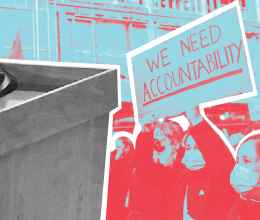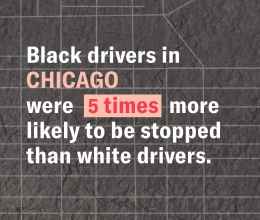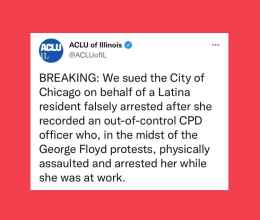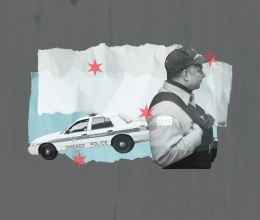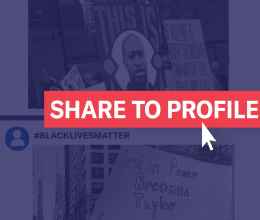
CHICAGO – The Chicago Police Department refuses to provide basic information about how they monitor social media and whether they use secret third-party surveillance software to do so. After being unable to get the information through Freedom of Information Act (FOIA) requests, the ACLU is asking a court to force the City of Chicago to release the information.
Social media monitoring software can be used to covertly monitor, collect, and analyze individuals’ social media data from platforms like Twitter, Facebook, and Instagram. This software enables law enforcement to search through all publicly available posts in real-time for information it may deem “threatening.”
“The police should not be using secret social media surveillance,” said Rachel Murphy, Staff Attorney, ACLU of Illinois. “We know that social media surveillance has been improperly used by other police departments to monitor individuals speaking up about critical public policy issues. The City needs to disclose whether they are using this type of software, and if they are, what companies they are paying for the software, how and when they use it, and whether there are any privacy protections in place."
In 2016, the ACLU of Northern California uncovered the widespread use of social media surveillance software in the state and obtained Geofeedia marketing materials labeling activists and unions as “overt threats.” Marketing materials for another company’s surveillance product encouraged police to monitor hashtags such as #BlackLivesMatter, #DontShoot, #ImUnarmed, #PoliceBrutality, and #ItsTimeforChange. Social media sites then subsequently cut off Geofeedia’s access to their users’ data.
To understand how the Chicago Police Department conducts surveillance of social media speech, in October 2016, the ACLU of Illinois sent a FOIA request to the Chicago Police Department asking for various information and documents surrounding its use of the surveillance software. The response revealed the use of software vendor Geofeedia from 2014 to 2016. In January 2018, the ACLU of Illinois submitted FOIA requests for updated information on the Department’s use of social media monitoring software and for First Amendment Worksheets, which Department members must complete when investigating First Amendment activity. The worksheets revealed that the Chicago Police Department used social media to monitor protests and gatherings on the day of President Trump’s inauguration, but the Department simply stopped responding to requests for documents related to the social media monitoring software.
“After months of promising that documents were forthcoming and several attempts on our part to negotiate, CPD has failed to provide any documents in response to our request for basic information on the use of this software,” explained Louis Klapp, attorney at Quarles & Brady and co-counsel on the case. “We are filing this lawsuit because of the CPD’s failure to comply with FOIA.”
Additionally, there has been no public notice, debate, community input, or lawmaker vote about the use of this invasive surveillance.
“We must shine a light on surveillance technologies that may be used to monitor those addressing critical public policy matters,” added Murphy.
